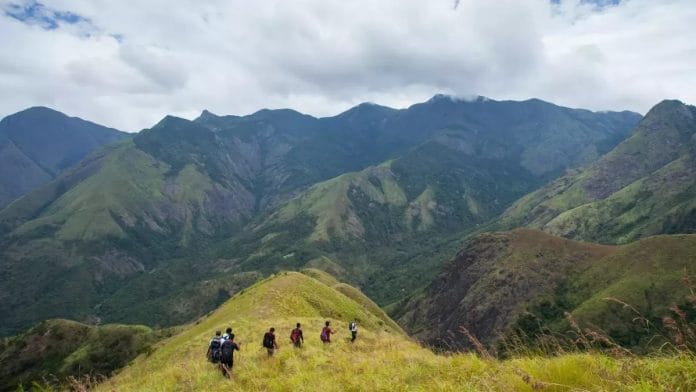Chennai: A detailed profile of 119 trek routes in the state, professionally trained locals to handle tourists, and a regulated trail that will ensure the safety of trekkers without hampering wildlife and the environment will be among the key features of the online platform ‘Atlas’ to be launched next month by the Tamil Nadu government.
The platform will allow users to register for and book their favourite treks, with all necessary guidelines provided.
“We are finalising the carrying capacity and the modalities, such as the perfect time for going for treks in particular spots. Training for the locals is also underway. We will finish this by July-end and will show it to the government. By 15 August, we will be ready to launch after revisions,” said Dr Srinivas R Reddy, Principal Chief Conservator of Forests & Chief Wildlife Warden, Tamil Nadu.
The first phase of the initiative will feature 40 existing treks in the state, including popular tourist destinations such as Coimbatore, Yelagiri, and Kanniyakumari.
Once the website is up and running, trekkers will have to mandatorily register before embarking on a trek in the state.
Apart from providing details of the trek, like the timings and how to reach the location, the website will also feature multimedia elements such as pictures and videos of selected treks.
Also, once the initiative is rolled out, there will be a complete curb on private agencies conducting unregulated treks across the state.
At present, trekking in the state is regulated under the Tamil Nadu Forest and Wildlife Areas (Regulation of Trekking) Rules, 2018, which mandates private agencies or groups to get prior permission from either the district forest officer, wildlife warden or deputy director of the respective forest area. It also leads to a ban on trekking activities in the state from 15 February to 15 April each year.
This regulation was formulated after the Kurangani incident in 2018, where 36 trekkers died in a wildfire.
“Following the incident, there was a ban on trekking in the state for a while. Even after the ban was lifted, trekking was not happening in Tamil Nadu as much as it happens in the neighbouring states. We thought it would be good if we can bring a minimum crowd and do regulated treks without hampering ecology and wildlife as there is so much interest in this activity,” said IFS officer Vismiju Viswanathan, deputy conservator of forest at the Tamil Nadu Wilderness Experience Corporation — a state government authority implementing the initiative.
Also Read: ‘Indians willing to bargain lives for cheap treks’—trekking companies have no govt oversight
Classification of trekking routes
According to officials, trekking routes in the state will be divided into three categories—easy, moderate and hard, based on the difficulty and time taken to complete the trek.
Reddy told ThePrint that for moderate and hard treks, the state will arrange quality and affordable food and stay arrangements by partnering with the local community, if necessary.
For this, the cost of registration might range from Rs 700-2,500, depending upon the terrain and the type of trek. There will be one guide for every five trekkers.
He added that the local community will be the sole beneficiary of the initiative, as they will be given the necessary training to become professional guides. At present, the local guides have been given basic training in hospitality and performing first aid in case of emergencies ahead of the launch. Eventually, they will be able to explain to the trekkers the route, the wildlife there, and more, as professional guides.
The locals will be provided with a tool kit comprising first-aid supplies, uniforms, water, and other necessary items. They will also be responsible for ensuring that rules, such as keeping the trail and forests clean and not deviating from the allowed routes, are followed, said Viswanathan.
The officials said the state might add more routes to the list eventually and launch an app in the future if it becomes a success. They said the initiative has garnered attention from hoteliers and private trekking agencies across the nation, such as Indiahikes, which have approached the state to discuss potential partnerships. “Right now we are running it alone. In the future, we might collaborate. We will see,” Reddy said.
(Edited by Priyanshi Khandelwal)
Also Read: Uttarakashi DM is drafting safety rules—9 trekkers didn’t have to die for govt to wake up






